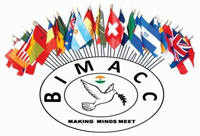
THE IMPORTANCE AND THE NEED TO RAISE AWARENESS REGARDING PRE-LITIGATION MEDIATION IN FAMILY MATTERS
Time and again, mediation as an alternate dispute resolution mechanism has proved to be an effective tool in the justice delivery system. It is the way forward to aid judicial activism and expansion. The emergence of mediation centres has made a statement regarding the popularity of out-of-court settlement among litigants. Various legislations such as the Civil Procedure Code, Legal Services Authority Act of 1987, Hindu Marriage Act of 1955, Commercial Courts Act, 2015, also promote the mechanism of mediation.
Pre-litigation mediation is a consensual process where the litigants decide to resolve the dispute amicably with the help of an unbiased adjudicator before the institution of a suit in the court of law. Unlike a lawsuit, the adjudicator appointed is a choice of the litigants, which ensures a win-win situation for the disputants. In mediation, the mediator’s sole purpose would be to restore the status quo, resolve the dispute amicably while being unbiased and remain non-judgemental throughout. Negotiation, impartiality and understanding remain as the two most important principles in mediation.
Pre-litigation mediation covers a wide range of cases including commercial, consumer, property, domestic, minor criminal cases etc. In disputes relating to family matters, the concept of mandatory court-annexed mediation does not exist as the proceedings may involve rights in rem. Hence, the responsibility to persuade the parties to opt for mediation lies on the family courts in order to speed up the process and resolve the issue amicably.
The need for increasing awareness and to promote pre-litigation mediation has been iterated by the Hon’ble Supreme Court of India. If all mediation centres set up pre-litigation desks/clinics by giving sufficient publicity and matrimonial disputes are taken up for pre-litigation settlement, many families will be saved of hardship if, at least, some of them are settled; the court said that ‘at the earliest stage i.e. when the dispute is taken up by the Family Court or by the court of first instance for hearing, it must be referred to mediation centres. Matrimonial disputes particularly those relating to custody of child, maintenance, etc. are pre-eminently fit for mediation.’[1]
A well-defined strategy is important in the initiation of the process of pre-litigation mediation. A certain level of sensitivity, perseverance and tolerance goes into handling disputes pertaining to family matters. Initiating mediation by either parties to a dispute will help do away with the criminal lawsuit that is generally filed in cases of family disputes, specifically matrimonial disputes. The existence of family law legislations does not necessarily mean that it is the only recourse to be adopted. Although the final decree would be passed by the court of law, the need to approach the issue from the perspective of an amicable settlement is not only beneficial to the litigants but also would lift the burden off from family courts that are already in a state of judicial backlog.
There exist various benefits in opting for pre-litigation mediation in family matters.
• Mediation which is a voluntary process is a mere facilitator that helps the parties to reach an outcome that is beneficial to both parties. It is flexible in nature. The understanding of the issues at hand goes beyond technicalities. Emotions and irrational factors play an important role. The mediator ensures a non-judgement-free zone for the parties to open up freely which would help understand the issue better so as to arrive at a more feasible outcome. The mediator acts as a counsellor and a conciliator to help the parties go beyond their personal vendetta against each other. The goal of meditation is to achieve lasting peace. The unbiased mediator does not arrive at a solution but merely facilitates the parties to decide what is best for themselves giving the parties a fair opportunity.
• It is strictly confidential in nature, unlike judicial proceedings and hence protects the interest of the disputants and helps them open up about their respective problems and issues, which leads to a better understanding of the situation at hand.
• Not only does pre-litigation mediation help the disputants but also promotes the interest of the entire family including those of the children. In cases of judicial custody, maintenance of children etc, the court proceedings may get gory and result in a burden on young minds. Mediation would avoid the dramatic turn of events that would unfold in the court of law since the former aims at resolving issues amicably.
• It reduces economic and emotional costs associated with resolving family disputes. A lawsuit is both time-consuming and economically draining as compared to mediation. The outcome of a lawsuit may not be favourable. The consideration of emotions, mutual interests, personal duties, social factors etc, in the process of mediation ensures that the parties reach a favourable outcome without the hassles and drawbacks involved in a lawsuit.
Although the trend of pre-litigation mediation is being adopted in family disputes pertaining to matrimonial issues, it is of utmost importance to promote the need for such a process to be institutionalised to a certain extent. This would not only help the disputants but would also help the justice delivery system. Pre-litigation mediation being the best alternate option would be the most effective tool to resolve issues as data shows numerous cases involving matrimonial disputes are coming forward. Though it is the court’s discretion to refer parties to mediation in cases of family disputes, pre-litigation counselling has proven to be more successful. It focuses on arriving at a strategic solution beneficial for both the parties rather than false claims being made to establish or prove one’s point and dragging each other’s names through the mud to prove who wins or loses in a lawsuit.
The need to set up pre-litigation clinics to promote and increase awareness regarding the benefits would help settle disputes peacefully. Lawyers should further advise their clients to opt for mediation rather than instituting a lawsuit to protect more significant interests of the parties and their families. It is currently bothersome to see that the judicial courts are being flooded with family disputes and in specific, matrimonial disputes. The Supreme Court has iterated that the presence of legislation is not merely an incentive to seek such recourse. Instead, the disputants should focus on settling the dispute peacefully in an amicable way. Efforts should be made to bring about conciliation to bridge the communication gap which leads to such undesirable proceedings. People rushing to courts to break up marriages should come as a last resort, and unless it has an inevitable result, courts should try to bring about conciliation. The emphasis should be on saving marriages and not breaking them.[2] There exists a necessity for the amicable resolution of family disputes now more than ever.
[1] K. Srinivas Rao vs. D A Deepa (2013) 5 SCC 226
[2] Gaurav Nagpal vs Sumedha Nagpal AIR 2009 SC 557
-Deepshika P
Intern
School of Law Christ (Deemed to be University)
Disclaimer: The views and opinions expressed in this blog are those of the author and do not necessarily reflect the official policy or position of BIMACC, any of the members of the Board, or the empanelled neutrals.
